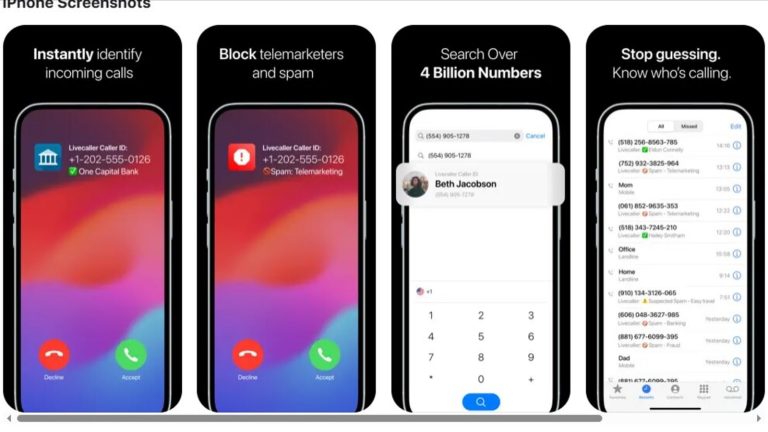A new real-time caller identification app called LiveCaller has officially launched for iPhone users, promising a privacy-focused and cost-free alternative to popular apps like Truecaller and Hiya. Developed by Sync.ME, the app leverages Apple’s recently introduced Live Caller ID Lookup framework, which became available with the release of iOS 18.2 in December 2024.
How LiveCaller works
LiveCaller allows users to instantly identify unknown numbers during incoming calls, displaying caller information directly on the call screen. Notably, the app achieves this without needing access to users’ contact lists or requiring account registration—two permissions often requested by other caller ID services.
The app is built to integrate seamlessly with iOS’s native interface, ensuring users are notified of potential spam, fraud, robocalls, or telemarketing calls without needing to open the app. The real-time lookup system encrypts the caller’s number before querying Sync.ME’s database—claimed to include over four billion phone numbers—with full end-to-end encryption for data privacy.
Unlike traditional caller ID services that run continuously in the background or require sensitive permissions, LiveCaller operates entirely within Apple’s secure framework. This not only improves performance and battery life but also enhances user privacy—a growing concern for smartphone users worldwide.
Currently, the app supports 28 languages and is available for free on the App Store. While its long-term monetisation strategy remains unclear, LiveCaller enters the market at a time when protection from unsolicited and fraudulent calls is becoming increasingly critical. According to government statistics, Indians lost more than ₹177 crore to financial scams in 2024, more than double the amount reported the previous year, highlighted Gadgets360.
Is there a subscription fee?
LiveCaller’s entry could shake up the caller ID app segment by offering robust features without the usual trade-offs in privacy or subscription fees. However, whether the service will remain entirely free in the long term is yet to be confirmed.


